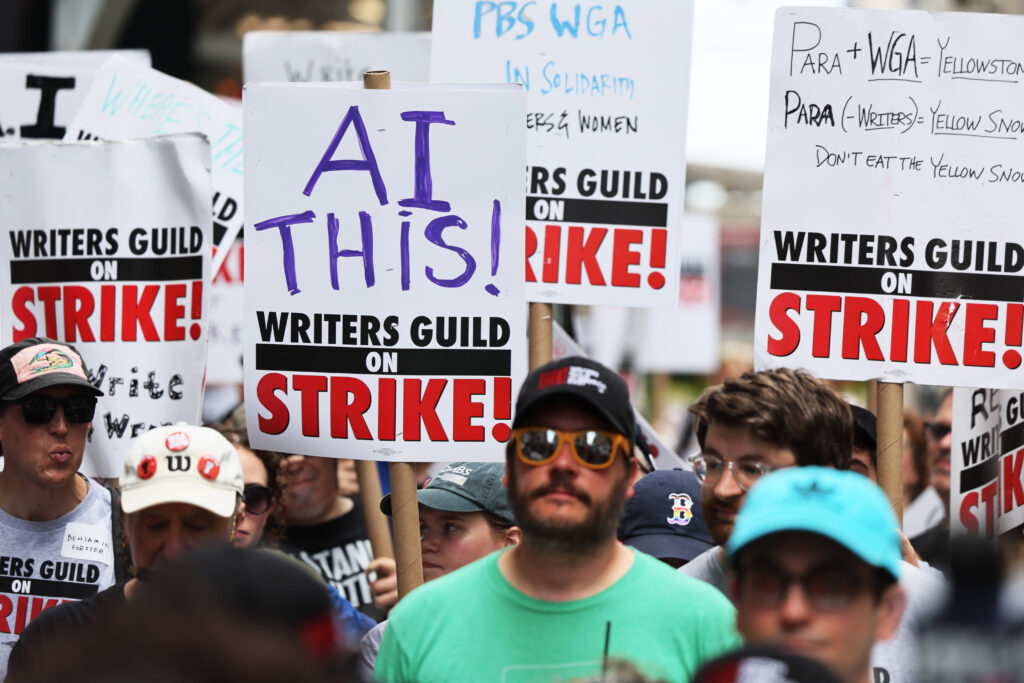The Writers Guild of America said Monday that the union will resume negotiations with Hollywood studios on Wednesday as a shutdown of productions across the TV and movie business drags on.
The announcement comes on the 139th day of the strike, which began May 2. The union told its members to continue joining picket lines as the talks resume. “You might not hear from us in the coming days while we are negotiating, but know that our focus is getting a fair deal for writers as soon as possible,” WGA said.
A spokesperson for the Alliance of Motion Picture and Television Producers, which represents the companies, confirmed the talks but offered no further comment.
Dual writers’ and actors’ strikes have halted the production of several big-name shows and films such as “Stranger Things,” Disney and Marvel’s “Blade,” AppleTV+’s “Severance” and Paramount’s “Evil.” Production companies have also taken a financial blow as a result of the strikes. Warner Bros. Discovery warned investors last week of a $300 million to $500 million hit to its earnings, due to the ongoing strikes.
There may be more labor unrest to come in Hollywood, too. In a first for visual effects workers, Marvel Studios VFX artists voted unanimously last week to join the International Alliance of Theatrical Stage Employees union. Now, the newly formed union is pursuing negotiations with Marvel, which is owned by Disney, to draft a contract.
Elsewhere, actor Drew Barrymore and comedian Bill Maher faced widespread criticism when they announced the return of their talk shows despite the WGA strike. Both Barrymore and Maher reversed their decisions this week following the backlash.
The last time WGA went on strike in 2007, an agreement was reached after 100 days after the work stoppage bled into February 2008. The WGA represents 11,500 screenwriters for film and television.
The WGA is calling for standardized compensation and residuals for streaming and theatrical releases. It also wants increased contributions to the pension plan and health fund. Furthermore, as artificial intelligence has gained prominence in the last year, the union is calling on the AMPTP to regulate the use of material produced using AI.
What about the SAG-AFTRA strike?
Despite the apparent progress being made between the WGA and the AMPTP, the Screen Actors Guild and American Federation of Television and Radio Artists (SAG-AFTRA), which started striking July 14, has not indicated a time in which they would return to the negotiating table.
SAG-AFTRA represents approximately 160,000 actors, media presenters, dancers, and more media professionals. SAG-AFTRA is currently granting some independent projects based within the U.S. the ability to begin production as part of an interim agreement.
SAG-AFTRA’s willingness to negotiate with the AMPTP could hinge on the result of negotiations with the WGA.
“SAG-AFTRA’s negotiating team remains ready at a moment’s notice to go back to the bargaining table to secure a righteous deal,” the labor union said in August. “Unfortunately, as we’ve seen from the recent news out of the WGA negotiations, it appears the AMPTP is still unwilling to make the concessions necessary to make a fair deal that would bring the strikes to a close.”
Source : CNBC

